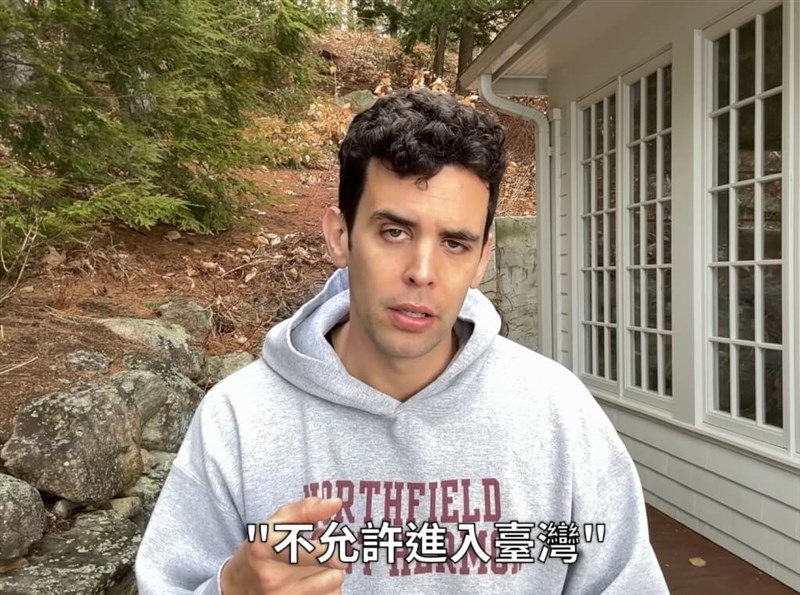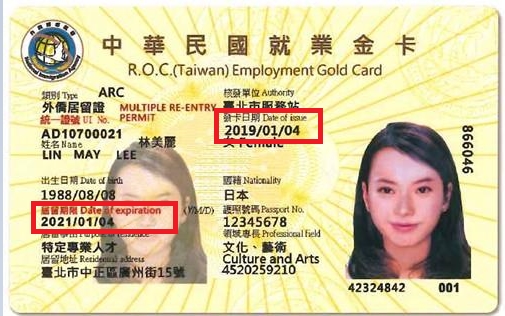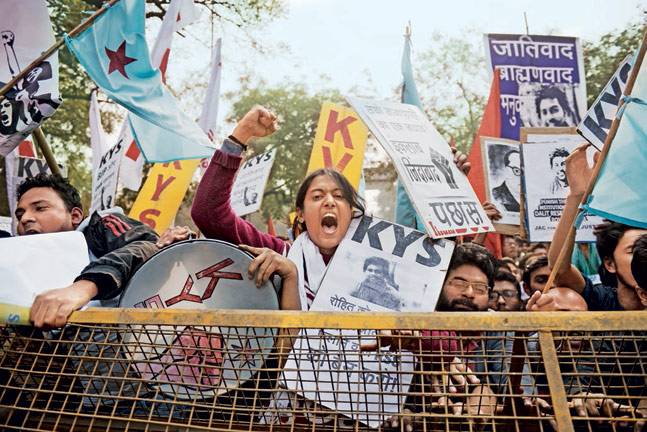
American Youtuber Barred from Entering Taiwan Despite Approved Gold Card Amid Labor Law Dispute
When the Gate Closes: U.S. Commentator’s Taiwan Entry Ban Sparks Legal and Political Debate
A Broken Journey: From Aspiration to Exclusion
On the morning of March 11, 2025, an American social commentator known online as Lele Farley stood in the international terminal of Los Angeles International Airport, ready to embark on a life-changing journey. Having sold his car, terminated his housing lease, and bid farewell to family and friends, Farley was en route to Taiwan, where he planned to settle under a recently approved Employment Gold Card. However, at the airline check-in counter, his hopes were abruptly dashed. “Sorry,” the staff member told him after scanning his passport. “The holder of this passport is not allowed into Taiwan.”

The moment marked a stunning turn in a case that has since sparked fierce debate within legal, political, and media circles across the Taiwan Strait. Farley, a fluent Mandarin speaker with a history of engaging Taiwan’s political landscape and supporting the ruling Democratic Progressive Party (DPP), now finds himself at the center of a controversy testing the limits of Taiwan’s immigration law, media freedom, and administrative transparency.
Gold Card Granted, Yet Entry Denied
Farley had obtained Taiwan’s Employment Gold Card, a policy tool introduced in 2018 aimed at attracting foreign professionals across key sectors including technology, finance, and the arts. The card offers significant benefits: a renewable three-year residency, eligibility for permanent residency after three years, and a five-year tax break on income earned in Taiwan.
Did you know that Taiwan's Employment Gold Card is a revolutionary 4-in-1 card that combines a work permit, residence visa, Alien Resident Certificate (ARC), and re-entry permit? Introduced in 2018, it allows foreign professionals to freely seek employment, switch jobs, or start their own businesses in Taiwan without needing pre-secured employment. Eligible fields include technology, finance, education, culture, sports, and more. The card offers numerous benefits, such as tax incentives, immediate access to Taiwan's National Health Insurance, and eligibility for permanent residency after three years. Additionally, it allows family members to apply for residency, making it an attractive option for global talent seeking career opportunities and a high quality of life in Taiwan

Despite receiving his Gold Card in February after a multi-agency review that included the National Immigration Agency (NIA) and the Ministry of Labor, Farley was denied entry before boarding his flight. His passport had been flagged without prior notice. Neither he nor his legal representatives had received any written or electronic communication from Taiwanese authorities detailing the restriction or its duration.
This disjuncture between the issuance of a government-endorsed immigration document and a separate immigration ban has raised systemic questions about inter-agency coordination. In a recent parliamentary hearing, when questioned by lawmakers about the apparent contradiction, Interior Minister Liu Shyh-fang declined to comment on “individual cases,” offering no substantive explanation.
Administrative Contradictions and the Role of Labor Law
According to subsequent investigations and statements by anonymous sources familiar with the case, the root of the ban lies in Farley’s previous appearance on Taiwanese political talk shows during the 2024 presidential election period. These appearances were deemed by Taipei City’s Labor Department as unauthorized work, triggering a report to the NIA and a subsequent immigration ban.

Under Taiwan's labor regulations, all foreign nationals—even those from visa-waiver countries like the U.S.—must obtain work permits for activities deemed as "employment," including media appearances that resemble regular panel commentary. While certain academic, business, and diplomatic activities are exempt from this requirement, participation in recurring political commentary programs, often referred to as "strip shows" (帶狀節目), falls into a gray area.
Overview of Taiwan's Media Environment and Rules for Foreigners
| Aspect | Details |
|---|---|
| Media Freedom | Taiwan has one of the freest media environments in Asia, with competitive private ownership across TV, radio, and newspapers. However, some media outlets face influence from Chinese business interests. |
| Foreign Participation | Foreigners can appear on media platforms without specific restrictions but must comply with general laws, including visa and residency requirements. |
| Media Ownership Rules | Media outlets must register their legal entity details, including tax and registration IDs, and list all distribution channels and URLs for transparency. |
| Key Media Outlets | Major outlets include United Daily News (Chinese), Taipei Times (English), Taiwan Television Enterprise (TTV), and International Community Radio Taipei (ICRT). |
| Regulatory Oversight | The National Communications Commission (NCC) oversees compliance with advertising laws, broadcasting standards, and content ethics. |
| Legal Language | The official language for laws is Chinese, but bilingual translations are available for reference. English translations are not legally binding. |
Legal scholars note that these programs are considered part of Taiwan’s commercial media sector, and paid or unpaid participation may displace local labor. “From a statutory perspective, the Labor Department's position is defensible,” noted one expert in Taiwanese administrative law. “But the procedural execution and lack of consistent enforcement invite scrutiny.”
A Broader Pattern: Equal Enforcement or Political Calculation?
Farley is not the only foreign media figure to face consequences. In early 2024, Wang Zhi’an, a Chinese journalist and critic of the DPP, was similarly banned from Taiwan after appearing on a satirical television show. Wang, who had entered Taiwan on a tourism visa, argued that his comments—though politically charged—fell within the scope of free expression, not labor violations. He has since launched an administrative lawsuit against the NIA.

In response to Wang’s case, supporters encouraged mass reporting of other foreign commentators, particularly members of Falun Gong-affiliated delegations, who had appeared on Taiwanese media under similar circumstances. These reports eventually led to entry bans for several other foreign nationals, including Canadian and American passport holders. While this wave of enforcement appears to reflect consistency, critics argue it underscores the reactive and politicized nature of Taiwan’s immigration enforcement.
“Equal application of the law is essential,” said one observer, “but retrospective punishment without notice, particularly for individuals aligned with the ruling party, raises red flags about the motivations behind the enforcement.”
Absence of Notification and Transparency Gaps
A key point of contention is the lack of official notification. Neither Farley nor other banned individuals reported receiving written documentation of their status from Taiwanese authorities. This omission potentially violates the procedural justice requirements embedded in Taiwan’s own Administrative Procedure Act, which mandates clear notification in all punitive administrative actions.
Table: Key Provisions on Notification in Taiwan's Administrative Procedure Act
| Provision | Description |
|---|---|
| Article 27 | Authorities may notify parties and third parties to appear, submit documents, or undergo inspections. |
| Article 31 of Enforcement Rules | Written notifications must include recipient details, investigation matter, required materials, date/time/place of appearance, and consequences for non-compliance. Notifications must be served at least 48 hours prior unless urgent. |
| Article 96 | Administrative dispositions in writing must include identification details of the subject, subject matter, legal basis, authority rendering the disposition, reference number/date, and available remedies. |
| Article 30 | Notifications regarding changes in party assignments or replacements must be served in writing; public announcements may replace written notices if serving them is difficult. |
“If a government agency imposes a restriction on an individual’s mobility, the affected party has a right to be informed in a timely and documented manner,” a Taipei-based administrative law scholar explained. “Failure to do so undermines both the legitimacy and legality of the measure.”
This procedural vacuum has further eroded trust among affected parties, some of whom claim to have discovered their bans only at airports. The chilling effect, experts warn, may extend to academics, journalists, and analysts engaging Taiwan’s public sphere in good faith.
Supporters Cite National Sovereignty and Labor Protection
Supporters of the bans argue that Taiwan, like any sovereign state, has the right to determine who may enter its territory and under what conditions. They maintain that enforcing labor laws strictly, regardless of political affiliation or nationality, affirms the principle of rule of law.
Proponents also highlight the risk of “backdoor employment” under the cover of media or academic activity, which may undermine local professionals. “The Gold Card system was not designed to facilitate political activism or circumvent labor protections,” one commentator stated. “Applying it strictly avoids setting dangerous precedents.”
Detractors Point to Political Retaliation and Erosion of Openness
Opponents see a different narrative. They argue that the real trigger was not unauthorized labor but political speech. Farley’s support for the DPP, they suggest, did not shield him once his presence became a liability. Likewise, critics of the government have consistently faced harsher enforcement.

“This is not about labor,” said one analyst. “This is about controlling who gets to speak in Taiwan, especially during sensitive electoral periods. It's an overreach that puts Taiwan’s democratic values at risk.”
Legal scholars further caution that the current legal framework lacks clear definitions regarding what constitutes “work” in the context of digital and media participation. Without reforms, enforcement may continue to be selective, if not arbitrary.
Implications for Taiwan’s International Standing
The unfolding controversy has drawn attention beyond Taiwan’s borders. As a jurisdiction often lauded for its democratic transparency and media pluralism, Taiwan faces growing scrutiny over its treatment of foreign commentators.
Did you know that Taiwan consistently ranks highly in global democracy and press freedom indices? In 2024, Taiwan was ranked 12th globally in the Economist Intelligence Unit's Democracy Index, maintaining its status as a "full democracy" and leading Asia. It scored 8.78 out of 10, with a perfect score in electoral process and pluralism. Additionally, Taiwan moved up to 27th in the World Press Freedom Index by Reporters Without Borders, achieving a score of 76.13 and being classified as having a "satisfactory" media environment. Despite these achievements, Taiwan faces challenges such as media polarization and sensationalism, which affect journalists' editorial independence and public trust in media[
Experts warn that if the perception grows that Taiwan selectively enforces laws to silence dissent or avoid political embarrassment, its image as a liberal democracy may suffer, particularly among Western allies and international human rights observers.
“Attracting global talent requires legal clarity and procedural fairness,” said a Taiwan-based researcher on democratic governance. “The current situation risks sending the opposite signal.”
Possible Legal Reforms and Next Steps
Legal advocates are now calling for a systemic overhaul of Taiwan’s labor and immigration policies for foreign media participants. Proposals include:
- Establishing clearer guidelines distinguishing public discourse from employment.
- Requiring formal notice and appeal procedures for all administrative bans.
- Ensuring all multi-agency reviews—such as Gold Card evaluations—include immigration status checks.

Meanwhile, Farley is reportedly weighing legal options. Though not yet confirmed, sources close to the matter suggest he may join or initiate administrative litigation to challenge the ban and seek judicial clarification.
A Tipping Point for Taiwan’s Legal System?
The case of Lele Farley has become more than a personal setback. It serves as a lens through which Taiwan’s governance, transparency, and adherence to democratic values are being assessed—by its own citizens and by the international community.
Whether this case leads to meaningful legal reform or becomes a footnote in Taiwan’s complex political narrative will depend not only on court rulings but also on how Taiwan chooses to reconcile its legal systems with its democratic aspirations. For now, the gate remains closed—physically for Farley, and symbolically for the many unresolved questions surrounding the intersection of law, politics, and freedom of expression in Taiwan.
